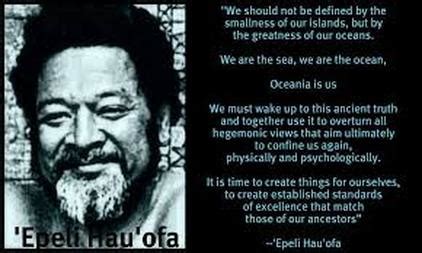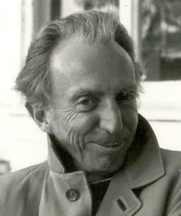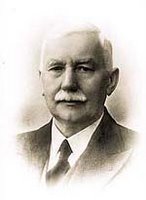A Quote by Jean-Jacques Rousseau
Everything is in constant flux on this earth. Nothing keeps the same unchanging shape, and our affections, being attached to things outside us, necessarily change and pass away as they do. Always out ahead of us or lagging behind, they recall a past which is gone or anticipate a future which may never come into being; there is nothing solid there for the heart to attach itself to. Thus our earthly joys are almost without exception the creatures of a moment.
Quote Topics
Related Quotes
Keep in mind how fast things pass by and are gone - those that are now, and those to come. Existence flows past us like a river; the "what" is in constant flux, the "why" has a thousand variations. Nothing is stable, not even what's right here. The infinity of past and future gapes before us - a chasm whose depths we cannot see.
We think very little of time present; we anticipate the future, as being too slow, and with a view to hasten it onward, we recall the past to stay it as too swiftly gone. We are so thoughtless, that we thus wander through the hours which are not here, regardless only of the moment that is actually our own.
If we do not use great care to mortify our will, there are many things which can deprives us of the holy freedom of spirit that we are seeking in order to fly more freely to our Creator, without always being bogged down with the clay of this earth. Moreover, there can never be solid virtue in a soul that is attached to its own will.
Let us, then, take our compass; we are something, and we are not everything. The nature of our existence hides from us the knowledge of first beginnings which are born of the nothing; and the littleness of our being conceals from us the sight of the infinite. Our intellect holds the same position in the world of thought as our body occupies in the expanse of nature.
That the past is ahead, in front of us, is a conception of time that helps us retain our memories and to be aware of its presents. What is behind us [the future] cannot be seen and is liable to be forgotten readily. What is ahead of us [the past] cannot be forgotten so readily or ignored, for it is in front of our minds' eyes, always reminding us of its presence. The past is alive in us, so in more than a metaphorical sense the dead are alive - we are our history.
There is nothing so charming as the knowledge of literature; of that branch of literature, I mean, which enables us to discover the infinity of things, the immensity of Nature, the heavens, the earth, and the seas; this is that branch which has taught us religion, moderation, magnanimity, and that has rescued the soul from obscurity; to make her see all things above and below, first and last, and between both; it is this that furnishes us wherewith to live well and happily, and guides us to pass our lives without displeasure and without offence.
Fear keeps us rooted in the past. Fear of the unknown, fear of abandonment, fear of rejection, fear of not having enough, fear of not being enough, fear of the future-all these fears and more keep us trapped, repeating the same old patterns and making the same choices over and over again. Fear prevents us from moving outside the comfort-or even the familiar discomfort-of what we know. It's nearly impossible to achieve our highest vision for our lives as long as we are being guided by our fears.
Thanks to our cinctures and corsets we have succeeded in making an artificial being out of woman. She is an anomaly, and Nature herself, obedient to the laws of heredity, aids us in complicating and enervating her. We carefully keep her in a state of nervous weakness and muscular inferiority, and in guarding her from fatigue, we take away from her possibilities of development. Thus modeled on a bizarre ideal of slenderness to which, strangely enough, we continue to adhere, our women have nothing in common with us, and this, perhaps, may not be without grave moral and social disadvantages.
It is not the multitude of hard duties, it is not the constraint and contention that advance us in our Christian course. On the contrary, it is the yielding of our wills without restriction and without choice to tread cheerfully every day in the path in which Providence leads us. It is to seek nothing, to be discouraged by nothing, to see our duty in the present moment, and to trust all else without reserve to the will and power of God.
The only things in which we can be said to have any property are our actions. Our thoughts may be bad, yet produce no poison; they may be good, yet produce no fruit. Our riches may be taken away by misfortune, our reputation by malice, our spirits by calamity, our health by disease, our friends by death. But our actions must follow us beyond the grave; with respect to them alone, we cannot say that we shall carry nothing with us when we die, neither that we shall go naked out of the world.
Nothing sweeter than to drag oneself along behind events; and nothing more reasonable. But without a strong dose of madness, no initiative, no enterprise, no gesture. Reason: the rust of our vitality. It is the madman in us who forces us to adventure; once he abandons us, we are lost; everything depends on him, even our vegetative life; it is he who invites us, who obliges us to breathe, and it is also he who forces our blood to venture through our veins. Once he withdraws, we are alone indeed! We cannot be normal and alive at the same time.
So briefly do we raise our heads, so quick sink back. For a moment we are lifted by a wave of time, are tossed up into the sunlight of consciousness We cannot see so far as where this wave began, but maybe we have waited some thousand years for it to come, and now it is on us. This is our moment, the wave is breaking. The crest which passes through us now in tumult was shaped by the past, and we in this moment are able to shape the crest which is to come.
This is perdition: the things to which the heart was attached pass away while the person himself, who is an eternal being, is filled with nothing but emptiness when he should have been filled with God Himself. That is why it is so very important that we turn our focus inward to the source of life that lives forever, even as we ourselves will live forever.







































